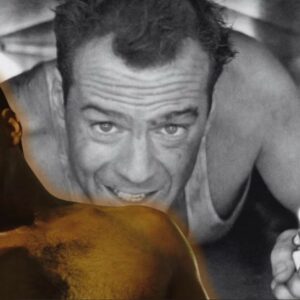Aretha Franklin, famously known as the “Queen of Soul,” was a powerhouse whose music transcended generations. Her legacy is enshrined in the annals of music history, not only because of her incredible vocal talents but also because of the monumental performances she delivered to audiences around the globe. Behind these stellar performances, there was an intricate web of planning, coordination, and dedication that ensured everything went off without a hitch. At the heart of this web was a pivotal figure—Aretha Franklin’s tour manager. This article delves into the life of Aretha’s tour manager, shedding light on the challenges, responsibilities, and unique experiences that came with managing the tour of one of the most iconic artists in music history.
The Role of a Tour Manager
A tour manager’s role in the life of a touring artist is nothing short of crucial. For Aretha Franklin, her tour manager was responsible for orchestrating the seamless execution of her tours. The tour manager’s duties ranged from the mundane, such as booking hotels and managing travel itineraries, to the highly complex, like coordinating with venues, ensuring the technical crew was aligned, and handling the numerous on-the-spot decisions that touring inevitably entails.
One of the tour manager’s most significant responsibilities was ensuring that Aretha Franklin could focus solely on her music. This meant the manager had to anticipate every possible need or issue that might arise. This proactive approach involved rigorous planning, from arranging for Aretha’s preferred meals to securing her privacy and comfort amidst the chaos of life on the road.
Additionally, the tour manager had to be well-versed in the intricacies of the music industry. This included dealing with promoters, navigating contracts, and ensuring that every party involved in the tour, from the roadies to the venue staff, was on the same page. In many ways, the tour manager acted as a bridge between Aretha Franklin and the rest of the world, allowing her to maintain her focus on delivering electrifying performances.
Building a Bond with Aretha Franklin
The relationship between an artist and their tour manager is built on a foundation of trust and mutual respect. Aretha Franklin was known for her exacting standards and strong personality. To gain her trust, the tour manager had to demonstrate an unwavering commitment to excellence. This involved understanding Aretha’s preferences, routines, and even her moods, ensuring that she felt supported at all times.
Trust was further cemented by the tour manager’s ability to keep Aretha Franklin’s best interests at the forefront. Whether it was negotiating contracts or managing the often hectic schedules of back-to-back performances, the tour manager had to balance being assertive with being adaptable. This delicate balance was essential in ensuring that Aretha felt her needs were always prioritized.
Moreover, the tour manager often acted as a confidant to Aretha. In the high-pressure environment of touring, having someone who could be relied upon for discretion and loyalty was invaluable. This relationship extended beyond professional duties; the tour manager was a crucial part of Aretha’s inner circle, providing emotional support when needed and celebrating her successes alongside her.
The Complexities of Managing a Soul Legend
Touring with a star of Aretha Franklin’s magnitude was a task that required not only impeccable organizational skills but also a deep understanding of the unique challenges that come with managing a music legend. One of the primary complexities was handling the enormous expectations that came with each performance. Aretha was not just any artist; she was the Queen of Soul, and every performance had to reflect that.
To ensure that each show was a success, the tour manager had to coordinate every detail meticulously. This included managing rehearsals, overseeing sound checks, and working closely with the technical crew to ensure that the lighting, sound, and stage setups met Aretha’s high standards. Any deviation from perfection could affect the quality of the performance, so the tour manager had to be vigilant in ensuring that everything was executed flawlessly.
Another layer of complexity was managing the logistics of the tour. This involved coordinating the travel arrangements for Aretha and her entourage, ensuring that everyone arrived at the right place at the right time, and managing the transportation of equipment. Given the size of Aretha’s tours, this was no small feat. The tour manager had to ensure that everything ran like clockwork, often dealing with last-minute changes or unexpected issues that could disrupt the tour’s schedule.
Moreover, the tour manager had to be adept at dealing with the media and managing Aretha Franklin’s public image. This included coordinating press conferences, handling interview requests, and ensuring that Aretha was presented in the best possible light. Given the intense media scrutiny that Aretha often faced, this was a critical aspect of the tour manager’s role.
Navigating the Challenges of the Road
Life on the road is inherently unpredictable, and for Aretha Franklin’s tour manager, this unpredictability was a constant challenge. From unexpected technical issues to travel delays and last-minute changes in the tour schedule, the tour manager had to be prepared for anything. This required a level of adaptability and problem-solving skills that few other professions demand.
One of the most significant challenges was managing the physical and emotional toll that touring could take on Aretha Franklin. The rigorous schedule of performances, coupled with the demands of travel, could be exhausting. The tour manager had to ensure that Aretha had enough time to rest and recuperate between shows. This often meant making tough decisions, such as canceling or rescheduling performances, to prioritize Aretha’s health and well-being.
The tour manager also had to navigate the complexities of dealing with different cultures and environments. As Aretha Franklin toured internationally, her tour manager had to coordinate with local crews, adapt to different technical setups, and manage the logistics of transporting equipment across borders. This required a deep understanding of the nuances of each location, as well as the ability to quickly adapt to new situations.
Moreover, the tour manager had to deal with the expectations and demands of Aretha Franklin’s fans. This included managing meet-and-greet sessions, ensuring that fans had a positive experience at the concerts, and handling any issues that arose with ticketing or seating. Given Aretha’s massive fan base, this was a significant aspect of the tour manager’s role.
The Emotional Highs and Lows
Touring with a music legend like Aretha Franklin was a rollercoaster of emotions. The tour manager experienced the incredible highs of seeing Aretha deliver show-stopping performances night after night, but they also had to navigate the inevitable lows that came with life on the road.
One of the emotional highs was witnessing the impact that Aretha Franklin’s music had on her audiences. The tour manager had a front-row seat to the power of Aretha’s voice and the way it resonated with people from all walks of life. Seeing fans moved to tears, dancing in the aisles, and singing along to every word was a testament to Aretha’s ability to connect with her audience on a profound level.
However, the tour manager also had to deal with the emotional lows that came with the pressures of touring. Aretha Franklin was a perfectionist, and any deviation from her standards could lead to frustration and tension. The tour manager had to be a calming presence, helping to manage Aretha’s emotions and ensuring that any issues were resolved quickly and efficiently.
The tour manager also had to navigate the challenges of being away from home for extended periods. Touring could be isolating, and the tour manager often found themselves acting as a support system for Aretha and the rest of the crew. This required a level of emotional resilience and empathy, as the tour manager had to be attuned to the needs of everyone on the tour, not just Aretha.
The Art of Problem-Solving
One of the most critical skills for a tour manager is the ability to solve problems quickly and effectively. On the road, unexpected issues are the norm rather than the exception, and the tour manager had to be prepared to deal with anything that came their way.
Whether it was a last-minute change in the setlist, a technical glitch during a performance, or a travel delay that threatened to disrupt the tour schedule, the tour manager had to think on their feet and find solutions quickly. This required a combination of creativity, resourcefulness, and a deep understanding of the music industry.
One of the most challenging aspects of problem-solving was dealing with the unexpected. For example, if a piece of equipment malfunctioned during a performance, the tour manager had to work with the technical crew to fix the issue as quickly as possible, often without Aretha Franklin or the audience even realizing that there was a problem.
Another challenge was managing the logistics of touring. From coordinating transportation to ensuring that everyone had the necessary visas and documentation, the tour manager had to be meticulous in their planning and execution. Any oversight could have significant consequences, so attention to detail was crucial.
The tour manager also had to be skilled at managing relationships. This included working with venue staff, promoters, and other stakeholders to ensure that everything ran smoothly. Building and maintaining these relationships was essential for the success of the tour, as it allowed the tour manager to navigate any challenges that arose with ease.
The Impact of the Tour Manager on Aretha Franklin’s Career
Aretha Franklin’s tour manager played a crucial role in her success, ensuring that she could focus on her music while they handled the logistics and challenges of touring. The tour manager’s dedication and hard work allowed Aretha to deliver her iconic performances night after night, solidifying her status as the Queen of Soul.
One of the most significant impacts of the tour manager was their ability to create a stable and supportive environment for Aretha. Touring can be incredibly demanding, both physically and emotionally, and the tour manager’s role was to ensure that Aretha was always in the best possible condition to perform. This involved managing her schedule, ensuring she had enough rest, and creating a positive atmosphere on the road.
The tour manager also played a key role in maintaining Aretha Franklin’s public image. By managing media interactions, handling press conferences, and ensuring that Aretha was presented in the best possible light, the tour manager helped to shape the way the world saw Aretha. This was especially important for an artist of Aretha’s stature, as her image was an integral part of her brand.
Moreover, the tour manager’s ability to handle the logistics of touring allowed Aretha Franklin to focus on what she did best—singing. By taking care of the details, the tour manager freed Aretha from the distractions of the road, allowing her to deliver the performances that would define her career.
The Legacy of Aretha Franklin’s Tour Manager
While Aretha Franklin’s music continues to inspire and move audiences, it’s important to remember the team behind her that made it all possible. Her tour manager was a key figure in her success, working tirelessly behind the scenes to ensure that every performance was a triumph.
The tour manager’s legacy is one of dedication, professionalism, and an unwavering commitment to excellence. Their work allowed Aretha Franklin to shine on stage, bringing her music to audiences around the world and solidifying her place as one of the greatest artists of all time.
As we continue to celebrate the life and music of Aretha Franklin, it’s essential to recognize the contributions of those who supported her along the way. The tour manager’s role may have been behind the scenes, but their impact on Aretha’s career was profound.
A Life in the Shadows, but Never Forgotten
The life of a tour manager is often one spent in the shadows, away from the spotlight that shines so brightly on the artist they serve. But while the world may not always recognize their contributions, those who know the industry understand just how crucial the tour manager’s role is to an artist’s success.
For Aretha Franklin, her tour manager was not just an organizer or a problem-solver; they were a key part of the magic that happened on stage. Their work allowed Aretha to do what she did best, night after night, year after year. And though their name may not be as widely known as Aretha’s, their legacy is forever intertwined with hers.
Tour managers like Aretha Franklin’s are the unsung heroes of the music industry. They are the ones who make sure that the show goes on, no matter what. And in doing so, they help create the moments that fans will remember for a lifetime. For Aretha Franklin, her tour manager was an essential part of her journey, and their work will never be forgotten.





